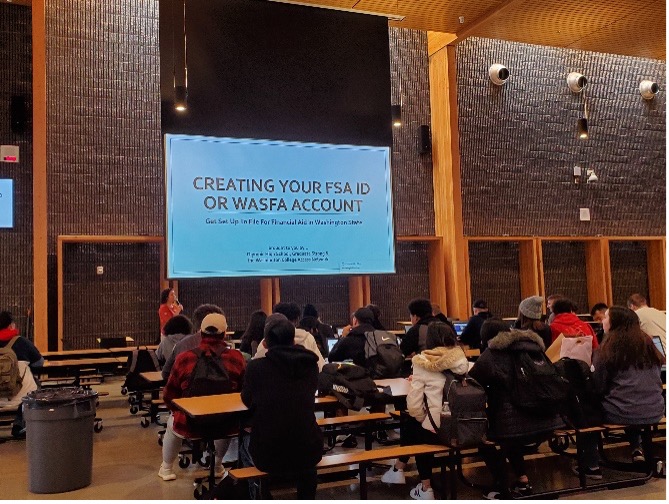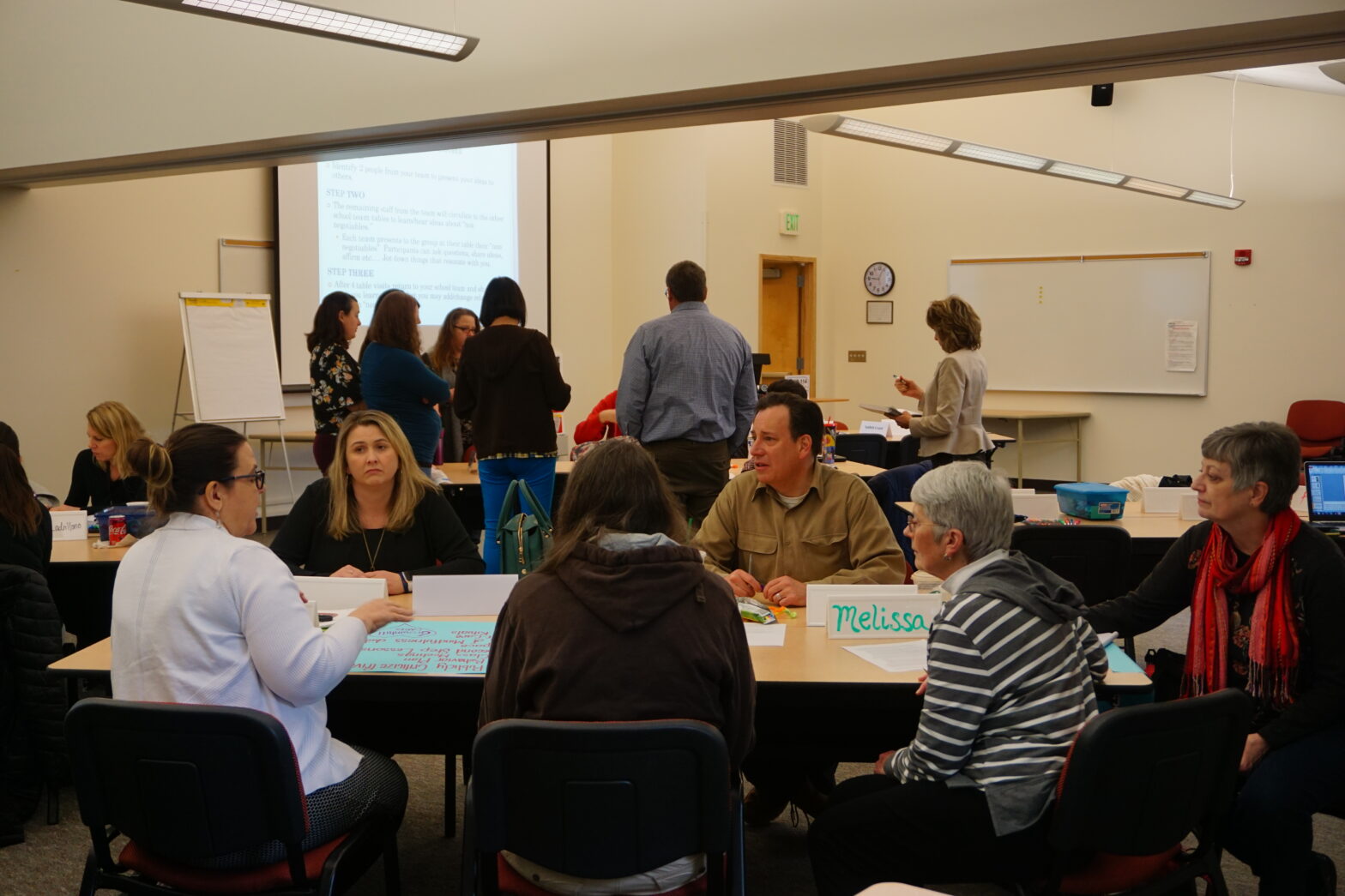Kitsap Strong/Graduate Strong is a collective impact movement that has resulted in a network of over 65 community organizations together with early learning, higher education, and local school districts, working to ensure that all children and youth in our community have the capabilities, connections, and credentials they need to flourish. Collective impact is fundamentally about collaboration and “doing together,” and by taking the time to learn together, we alter the way we think about and solve community challenges. The impact of the Kitsap Strong/Graduate Strong Network is felt through the changes that ripple through our community and our systems as result of our collaborative work.
In addition to establishing a common agenda and shared measurements, other elements present and prominent within our movement are collaboration instead of competition and continuous communication. When each agency in a community views the “problem” (mental health issues, substance use, homelessness, criminal behavior, chronic disease, educational attainment, etc.) through their own perspective… we have isolated impact. Collective impact allows for the emergence of innovative ideas/solutions, when communities develop a common language, a shared understanding/perspective of the “problem,” and work together towards a shared goal. Effective collaboration requires strong relationships and a process for coming together & learning and creating an environment in our community where agencies are supported and rewarded for collaboration and innovation.
When the movement first started the energy was around jumping right to “solutions.” Fantastic of course, but the network took the time to pause and spend time on a critical component to the longer-term success of the innovation and partnerships that were yet to be formed through the network. While time-consuming, this step and process of identifying shared values in which the network would engage in the collective work was critical to begin setting a culture of shared leadership to the movement. What resulted was a set of values that guide our bold and courageous approach:
- EQUITY: An inclusive person-centered approach that focuses on populations that have historically been furthest from opportunity.
- RESPONSIBILITY: Shared accountability that brings community and schools together.
- TRANSPARENCY: Research-based and driven by disaggregated data shared to influence and improve outcomes for ALL youth.
- COMMUNITY: Our community has strengths and resources to help ALL students flourish.
- RESILIENCY: Building resiliency over time through positive experiences and relationships.
- INNOVATION: Test and try new ideas and actions, sometimes emphasizing learning over outcomes.

So how have these values shown themselves in our collective work? One stellar example that came from following the energy with partners involved in one of the network’s action-focused workgroups is the Financial Aid Navigator program. While considering a commonly cited statistic that estimates over 70% of living-wage jobs in 2030 will require a credential beyond a high school diploma and that in 2018, approximately 40% of Kitsap and North Mason high school graduates did not enroll in any form of post-secondary education, the workgroup engaged in regular analysis of data for contributing factors.
The understanding that applying for financial aid is a crucial first step toward an affordable degree or credential created a focus on strategy development related to financial aid completion.
The sentiments in the brainstorming over several meetings came back to the notion that many of the experiences and learning opportunities that shape a child’s life occur outside of the classroom in our communities and that science tells us that children develop the capabilities they need to overcome challenges through connections with caring and competent adults. What if we were meeting youth and families where they are? What if we were equipping the caring adults with existing relationships and connection to youth and families with the knowledge needed to engage in a meaningful conversation (and hopefully action!) related to financial aid completion?
A Teen Services Librarian from the local Regional Library System posed simply, “what if we try it at the library and train all of the teen services librarians?” And there we have it: The first “Financial Aid Navigator” program, in which over 30 caring adults act as Navigators, was launched to help high school students with the process of applying for financial aid in community, at church, at the YMCA, at the local coffee shop or even at school events where extra support is needed.
While the current health pandemic has altered the initial efforts of the Navigators, with innovation and resilience leading the way, the partnership has engaged in some successful future-bound support of youth and families in new virtual ways adding new accessibility that we plan to continue in the future.

